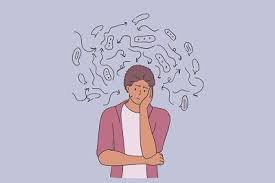Firstly, addiction and anxiety disorders are two prevalent mental health conditions that often overlap and have intricate relationships with one other. Addiction can intensify feelings of worry, resulting in a vicious cycle that is difficult to escape, even while anxiety can trigger substance usage as a coping technique. Comprehending the complex correlation between anxiety and addiction is vital for efficacious intervention and mitigation tactics. This article will look at these two illnesses' underlying causes, risk factors, and potential therapies in order to completely comprehend their link.
Understanding Anxiety and Addiction:
Extreme fear, anxiety, and trepidation are hallmarks of a number of illnesses that are classified as anxiety disorders. These disorders include panic disorder, phobias, social anxiety disorder, and generalized anxiety disorder (GAD), among many more. Individuals with anxiety disorders often experience persistent distress and find it difficult to carry out their daily activities.
However, obsessive substance use despite negative consequences is characterized as addiction, commonly referred to as substance use disorder. Among the substances that are commonly abused include alcohol, nicotine, illegal narcotics, and prescription medications. Addiction is a complicated condition that is influenced by genetic, environmental, and psychological factors.
The Connection Between Anxiety and Addiction:
Anxiety and addiction are mutually reinforcing conditions, with each supporting the growth and maintenance of the other. People with anxiety problems may take medications as a kind of self-medication to temporarily reduce their symptoms. For instance, a person with GAD may misuse benzodiazepines to relieve tension and worry, while a person with social anxiety may turn to alcohol to lower their inhibitions in social settings.
Substance usage does, however, frequently produce temporary respite from anxiety symptoms, which is followed by a rebound rise in those symptoms. This pattern has the potential to eventually result in the development of addiction, dependence, and tolerance. Substance misuse can also exacerbate anxiety disorders by changing the chemistry of the brain and making symptoms worse.
On the other hand, long-term substance misuse can cause neurological alterations in the brain that result in feelings like anxiety. Long-term drug or alcohol abuse affects how neurotransmitters like GABA, dopamine, and serotonin work. These neurotransmitters are linked to anxiety and addiction. Consequently, during periods of withdrawal or intoxication, people may exhibit increased anxiety, restlessness, and irritability.
Risk Elements and Weaknesses:
Addiction and anxiety disorders are more likely to develop in people who have certain features in common. Given that some genetic differences predispose individuals to both illnesses, genetics plays a substantial influence in both conditions. Anxiety and drug use problems can also emerge later in life as a result of early life pressures, trauma, and negative childhood experiences.
Environmental influences that shape susceptibility to anxiety and addiction include peer pressure, socioeconomic position, and substance availability. For instance, those who experience significant amounts of stress or trauma may turn to drug usage as a coping strategy more frequently.
Moreover, anxiety and addiction frequently interact with co-occurring mental health conditions including depression and post-traumatic stress disorder (PTSD), which further complicates the clinical picture and treatment plan.
Techniques of Care:
An integrated treatment strategy that targets both addiction and anxiety at the same time is necessary for effective co-occurring condition management. Depending on the needs of the individual, this may entail a mix of behavioral treatments, psychotherapy, and medication.
Prescription drugs including benzodiazepines, serotonin-norepinephrine reuptake inhibitors (SNRIs), and selective serotonin reuptake inhibitors (SSRIs) can be used to treat anxiety symptoms while lowering the risk of drug abuse. Nonetheless, care needs to be taken when recommending potentially addictive drugs to people who have previously struggled with a substance use disorder.
Cognitive-behavioral therapy (CBT), dialectical behavior therapy (DBT), and motivational interviewing are a few psychotherapy modalities that can assist people in managing cravings, creating more effective coping mechanisms, and addressing underlying psychological issues that underlie anxiety and addiction.
Support organizations like Alcoholics Anonymous (AA) and Narcotics Anonymous (NA) offer invaluable peer support and encouragement to those in recovery in addition to official therapy. In order to enhance social support networks, lessen stigma, and promote communication, family therapy and education are also crucial parts of treatment.
In conclusion:
Anxiety and addiction are closely related, with each disorder affecting and sustaining the other. Comprehending the intricate relationship between anxiety and addiction is crucial in order to formulate efficacious preventive and therapeutic approaches that tackle the fundamental causes of both disorders.
People can improve their quality of life and attain greater results by using an integrated approach that addresses anxiety and addiction at the same time. Pharmacotherapy, psychotherapy, support groups, and holistic interventions can be used in conjunction with one another to break the cycle of anxiety and addiction and create a path toward long-term recovery and mental health.


No comments yet